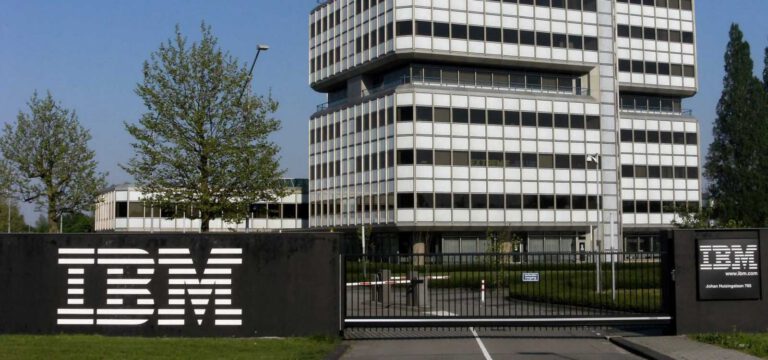The International Business Machines (IBM), a multinational tech company that is currently in the top 100 largest companies in the world, has been one of the most active adopters and promoters of the distributed ledger technology (DLT), better known as blockchain. The fact that such a large and reputable company like IBM has shown interest in blockchain hinted that we’re not dealing with a technology that is relevant only for cryptocurrencies like Bitcoin. DLT has a lot of use cases and can transform entire industries. The tech giant was among the first to grasp the tremendous potential of blockchain and has developed its own DLT platform to be used by any third parties.
IBM’s Blockchain products and services
IBM is currently offering several packages to access its Open Blockchain platform, which is built on Hyperledger Fabric – a product by blockchain project Hyperledger. Users can choose between two main packages: the starter plan and the enterprise plan. The former was launched recently and is available for those who want to explore the technology especially in pilot tests. Besides the mentioned two plans, there is also the Enterprise Plus Plan, and the Self Managed Plan, which is about to be launched soon.

Apart from its in-house blockchain solutions, IBM has developed Batavia, a global trade finance platform built on its IBM Blockchain Platform. The trade finance system is the result of the joint effort of the tech giant and five large banks – UBS, CaixaBank, Bank of Montreal (BMO), Commerzbank, and Erste Group.
In March 2018, IBM announced in a briefing that more than 400 corporate clients were using its blockchain services. Some notable users are VISA, HSBC, Nestlé, and Walmart.
At that time, 63 companies were cooperating with the tech giant in blockchain-oriented consortiums that covered different industries, such as global trade, global payments, and food supply chain management.
IBM’s Partnerships and Blockchain-related projects
Over the last months, readers could find countless headlines related to IBM’s involvement with blockchain. Here are only a few partnerships and projects led by the US-based company:
- In July 2018, IBM signed a contract with the Australian government to provide its blockchain solutions in exchange for $740 million for a period of five years. This is one of the most important blockchain-related agreements of IBM. The Australian government estimated that the partnership would save A$ 100 million in taxpayers’ money.
- At the end of May 2018, Danish transport and logistics company A.P. Moller-Maersk announced that it would partner with IBM to develop two DLT apps. The blockchain solutions were expected to streamline shipping trade processes.
- At the beginning of May of this year, IBM partnered with Australian and New Zealand Banking Group (ANZ) and Suncorp New Zealand to test blockchain in the insurance industry. The companies wanted to prove whether blockchain could ensure a high level of transparency and speed up data transfer and payment reconciliation processes.
- In mid-December of 2017, IBM and Walmart entered into an agreement with China’s e-commerce giant JD.com and Tsinghua University to form the Blockchain Food Safety Alliance. The group’s mission was to leverage blockchain for the Chinese food supply chain.
- In October 2017, IBM Watson Health, IBM’s unit that revolves around medical services, started to collaborate with the US national public health institute Centers for Disease Control and Prevention (CDC) to trial blockchain for various tasks. If the experiment turns out to be successful, the technology could be used at the federal level.
- During the same period, the US tech giant partnered with Stellar to build a blockchain-based banking system to allow fast transfers in the South Pacific region. The platform uses Stellar’s cryptocurrency called Lumens (XLM). IBM pledged that the new system would allow merchants and consumers to move funds in almost real-time thanks to the DLT. The network reaches twelve foreign exchange channels, including in Australia, New Zealand, Tonga, and Fiji. After this news, Stellar’s Lumens became popular, and its price started a strong bullish rally.
- In May 2018, IBM was among a group of 30 companies, including Hyperledger, Ford, BMW, General Motors, IOTA, Renault, and Bosch, that launched the Mobility Open Blockchain Initiative. The consortium aims to use blockchain for various use cases related to cars, from autonomous payments to congestion fees and supply chain.
- In the same month, IBM was collaborating with environmental tech startup Veridium Labs to develop a token that would be backed by carbon credits. VERDE (VRD), as the token is called, will be traded on the Stellar blockchain.
It’s worth mentioning that the listed pilots, projects, and consortiums are only a few notable examples that involve IBM.
The final word
IBM did it right when deciding to bet on blockchain. If 2017 and maybe the start of this year has been the period of blockchain pilots and explorations, from now on, we can see more and more real-world use cases that leverage the technology.
In the future, the US tech company wants to expand its blockchain operations. For example, IBM said that it would hire about 1,800 people in France to deal with projects related to DLT, artificial intelligence (AI), internet of things (IoT), and cloud computing.
IBM has already consolidated its position as a key player of the emerging blockchain industry.

